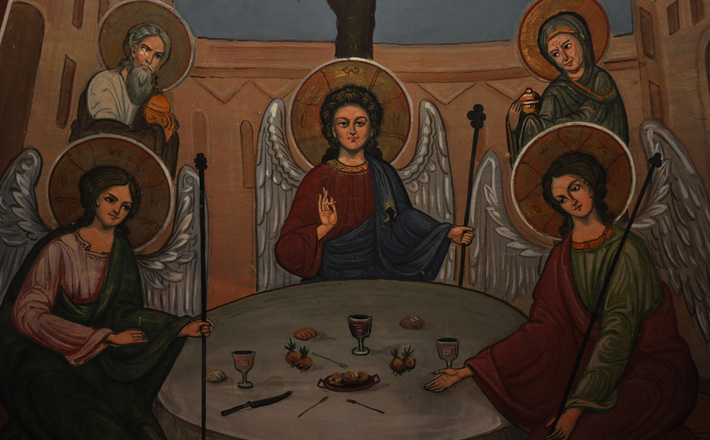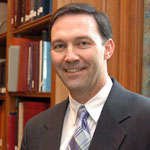Commentary on Psalm 8
Psalm 8 is a hymn of praise.
There are many examples of this type of psalm in the book of Psalms (for example, Psalms 93, 136, 150). But Psalm 8 is unique in at least two ways.
First, it is the first hymn one encounters when reading the Psalms straight through. The psalms that immediately precede it are prayers spoken by people who are suffering or who are persecuted (Psalms 3-7). Psalm 8 reveals that those suffering at the hands of evil forces are those made in the image of God and valued highly by their creator. Indeed, the psalm proclaims that humans are God’s agents on earth. Second, this psalm is the only hymn in the Psalter spoken entirely to God. It emphasizes God’s sovereignty (8:1, 9) and proclaims that humans exercise their legitimate authority within the rule of God.
The first half of verses 1 and 9 are identical. They give structure to the psalm and draw attention to the majesty and sovereignty of God. The opening of the psalm seems to express what was promised at the end of Psalm 7, “I will sing praise to the name of the Lord” (Psalm 7:17). “Name” refers to God’s essence and character. In this psalm, that character pertains primarily to the divine power over the created order. Psalm 8:1a and 9a declare that the whole created order gives evidence of God’s sovereignty. It is not that the psalmist admires elements of creation as though God is in them. Rather, the psalmist wonders at the natural world because of the majesty of God who stands over them and has put them in place.
Perhaps the greatest difficulty in interpreting Psalm 8 is the question of how verse 1b relates to verse 2. This second section of the psalm seems to expound on verse 1a, but what exactly does it intend to say? The expression “you set your glory above the heavens” (8:1b) probably indicates that God is sovereign and thus sits as king over the creation. From above God subdued chaos and made the world with order and regularity.
Verse 2 is an exaggerated statement that further makes the point. Even the weakest creatures (babes and infants) give voice to the power of God that overcomes all forces that would thwart God’s will. The “avenger” and “enemy” here most likely refer to the chaotic forces God overcame when creating the world (see Genesis 1:1-2:4).
The next section of the psalm (verses 3-8) focuses on human beings and their place within the created order. But as it does, the psalmist presents the high place of humans in creation as a marvel in the face of the magnificence of the rest of God’s work. The question, “What are humans?” has two important features that are keys to the meaning of the psalm.
First, the word “human” translates the Hebrew expression ben adam (“son of man”). Adam is closely related to the word for earth or soil (adamah; Genesis 2:7). “Son of man” therefore connotes humanity’s finitude and fallibility. The human is from the earth, not from the heavens.
Second, it is important to note that the question (“What are humans?”) is not an abstract query about the nature and identity of humankind. Rather, the question puts the human in relation to God’s greatness: “What are humans . . . that you would pay attention to them?” Hence, although the answer to the question is quite positive in Psalm 8, the same question appears in Psalm 144:3-4 and Job 7:17; 15:14 in a way that casts negative light on humanity (see also Psalm 144:2).
Despite the lowliness of humans before God, verse 5 declares God made humans “a little lower than God.” The word for God, however, is a general word (elohim) that may be translated “angels” or “gods.” Only context can determine if the word refers to the one God, to the attendants around God’s throne, or to the gods of the nations. In Psalm 8 it is impossible to tell the exact intention. The point, however, is not so much the identity of elohim, but the difference between the heavenly and earthly realms. God put humans in charge of the earth. The dominion of humans extends to all living creatures. Here they are classified as domestic and wild, birds and fish.
The portrait of humans in this section is much like the one in Genesis 1:1-2:4a and 2:4b-25. The image of God bestowed on humans in Genesis 1:26-28 is defined by human dominion. In Genesis 2:15 God makes the human the caretaker of the earth. So also Psalm 8 describes the unique place of humans in terms of the human place over other creatures.
The language of Psalm 8:5-8 suggests humans are royal creatures. In Egypt pharaoh was described as the “son of God,” as one who represented the deity on earth. In other parts of the Old Testament the Israelite king is described in similar ways. Second Samuel 7 calls David God’s son when God appoints him to his office. Psalm 89:25 presents David as the earthly representative of God’s reign from heaven.
Psalm 8, like Genesis 1:1-2:4a, seems to present all humans in the royal office. This may be due in part to the fact that kingship came to an end in Israel in 587 BCE. When the monarchy ended the royal office once reserved for the king was transferred to humankind as a whole. Glory and honor are words used to describe monarchs, but here they describe all human beings.
The final verse contains the same words as the first line of the psalm (8:1a). But the repetition of these words adds emphasis and says something that the first occurrence of the words alone does not say. By repeating the words at the end the whole psalm is given a structure that calls attention to God’s sovereignty. Just as God’s majesty begins and ends the psalm, so also it creates the context for human glory.


May 26, 2013